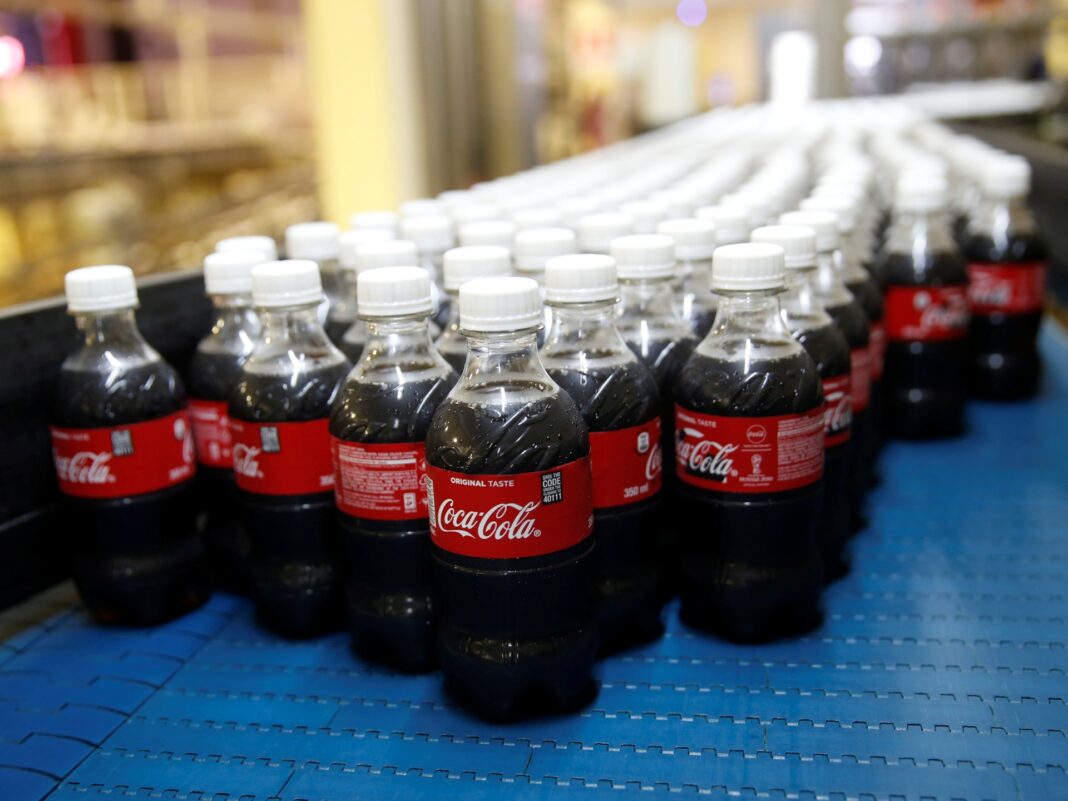The 2024 Olympic Games are upon us and like many people around the world, I am excited to tune in and follow the action. Like most, I will cheer for athletes from my home country. Not wanting to miss the moments when new world records are set and stars are made, I will watch the sprinting. As a marine scientist, I have a natural affinity with anything remotely related to the ocean so I will also likely follow all the watersports. Finally, over the next two weeks, I will be tuning in across all events to watch for something most will not notice – reusable cups.
For a living, I campaign to stop plastic pollution from devastating our oceans. As part of this work, my colleagues and I are trying to get the world’s largest beverage companies to sell more of their drinks in reusable packaging instead of single-use plastic. A 10 percent increase in reusable beverage packaging globally by 2030 can eliminate more than one trillion single-use plastic bottles and cups and prevent up to 153 billion of these containers from polluting the world’s waterways and seas. Reusable packaging is the best solution the beverage industry has for addressing its contribution to the plastic pollution crisis currently facing our oceans. For six years running, Coca-Cola and Pepsi have been named among the world’s top plastic polluters by the international Break Free From Plastic movement. So, I was thrilled when I first learned that the Paris 2024 Olympic and Paralympic Games would serve beverages to spectators in reusable packaging, potentially replacing millions of single-use plastic cups.
This decision by Paris 2024 is an important milestone in the global fight against plastic pollution, marking a shift towards large-scale reuse systems and away from the take-make-waste economy where packaging is used only once, then discarded. The 2024 Games will be the largest sporting event in history to use reusable packaging, though recent reports have indicated that this effort will be less than perfect, with some significant flaws.
A key design requirement of effective reuse systems is that reusable packaging should replace single-use packaging. This is necessary to ensure that the system achieves its objective of maximally reducing packaging waste – and pollution. To most, this would seem an obvious requirement but unfortunately, at Paris 2024, somewhere in the planning process, this objective got lost or was never prioritised in the first place. At the Paris Games, reports have confirmed that many of the beverages served to spectators in reusable cups will be poured from single-use plastic bottles. The organisers have claimed that this decision was due to operational restrictions in temporary venues where fountain machines can’t be installed. This excuse is hard to swallow. Leading sponsor Coca-Cola, its packaging and distribution partners, and event organisers should work harder to develop innovative solutions that allow them to meet demand without the need for single-use plastic.
An additional key reuse system design requirement is that reusable packaging does not feature attractive event branding. Unfortunately, at Paris 2024 many reusable cups will feature the Olympic logo, making them appeal to spectators as souvenirs and reducing the likelihood they will be returned – and reused. While fans are likely to reuse these cups at home, reuse systems cannot reach their full potential of minimising waste – and carbon emissions – without high return rates. Using unbranded reusable cups is completely feasible – these are already being used at large-scale concerts and music festivals such as those owned by the entertainment company Live Nation, where a reusable cup system, TURN, has achieved return rates of more than 90 percent.
Despite the flaws, the inclusion of reuse at Paris 2024 remains – for me – a beacon of hope for the oceans. Importantly, with the world watching, Paris 2024 presents an unparalleled opportunity to put the spotlight on reuse, raise awareness about the environmental benefits of reusable packaging, and increase consumer demand for more of it. Earlier this month, more than 100 sport organisations and elite athletes from around the world took advantage of this opportunity, calling on leading beverage companies and sports sponsors to increase reusable packaging in place of single-use plastic. This request was made through a letter sent to the CEOs of the Coca-Cola Company, PepsiCo, and Coca-Cola’s largest bottler – Coca-Cola Europacific Partners (CCEP). It specifically asked these companies to dramatically increase reusable packaging, eliminate single-use plastic at future sporting events, and support an ambitious UN plastic treaty.
The letter sent a powerful message against single-use plastic from the sport community, and I was heartened to see the tremendous level of support. It’s clear athletes care about this issue, and major sport sponsors should take note. More than 50 Olympians, Paralympians, world champions, and world record holders supported the letter, including 23 athletes who will be competing at the Paris 2024 Games. Over the next two weeks, I will be cheering the loudest for these athletes – who are champions not only in sport, but for the oceans, too.
Plastic pollution is an issue that impacts us all – athletes, and spectators alike. In the spirit of the Olympics, it’s time for all of us to come together and ditch single-use plastic in favour of reuse. The future of our environment, our climate, and our health depends on it.







